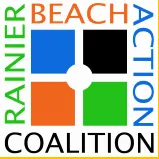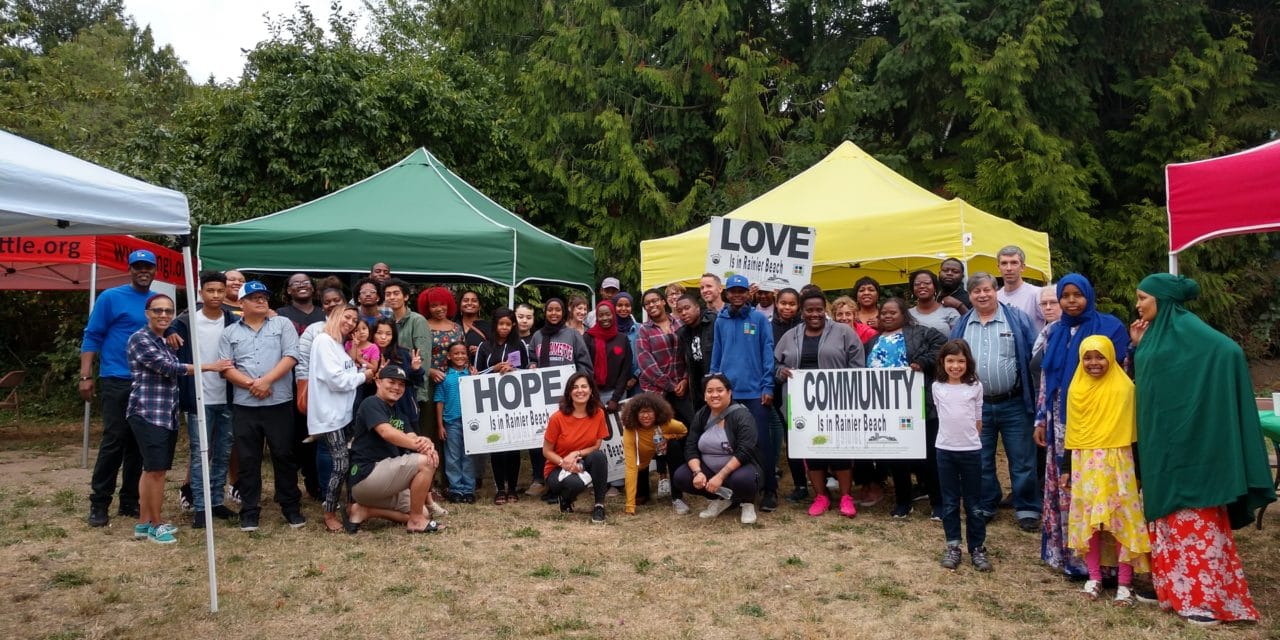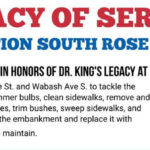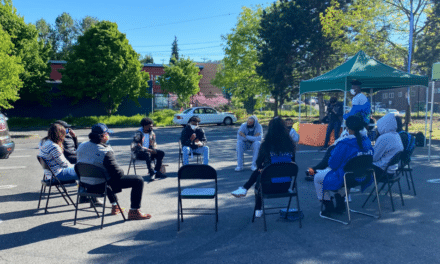- Hold Meetings. RBAC held four COVID centered meetings in the first seven days of the leading up to and following the Stay Home Stay Healthy order. Communication is key and meetings are an important tool in helping communication to flow. There is no guarantee that everyone will be on the same page but the effort will be worth it in terms of relationship building and creating a pathway for innovative ideas
- Stick to the organizational mission. Your mission should drive you. In RBACs case engaging residents and empowering the neighborhood is what we seek to do so, we opened a hotline, put up a banner with the hotline number, posted this information on all of our social media platforms.
- Make sure your worker’s families are sound and support deep conversations within the household. One work unit at RBAC has four workers in it and each household has a person over 70 years of age in it. An in-depth conversation was extremely important and led to decisions that the workers honor the Stay Home Stay Healthy order as the work they were doing was not considered “essential services”. Workers’ families have cited challenges with bills and groceries, see to it that their needs are met.
- Be creative/innovative. This naturally happens when meetings with people occur. Some ideas are not as good as others but idea generation is critical. The thing to do is to make sure your ideas are rich ideas, that is, ideas that can 1. Be assigned to someone, 2. Can be a model, 3. Has a cost (low, medium, high) that can be applied to it.
- Have grace. This is a stressful time for everyone, I mean everyone. People are very likely to be at a breaking point, and it’s possible we do not know all that’s going on in our households. Let grace abound! It’s easy to be short with each other in times like these, resist resist, resist.
- Contact your elected officials. We are seeing signs that our society is suffering from the effects of gross inequality, this is wrong. Sharing this with our elected officials is critical, there are things they can do tonight, that’s why we elected them, isn’t it?
- Know that colleagues who sit at tables you sit at are challenged also. Reach out to your colleagues that you are organizing with and check on their well being. You want them with you on the other side of this don’t you? Your relationships will be stronger for it. Lord knows coalition and collaboration work is difficult, chalk full of conflict (which is not necessarily bad if it’s a good conflict). Having walked together through COVID19 will create a bond between you that will be a driver for ongoing effective relationships.
- Try to figure out a way to organize the avalanche of information flowing during times such as this. Make no mistake we have had a tremendous challenge keeping up with it all. An in house information broker or a team designated for this role would ideal.
- Look for signs that the organization is stabilizing. We are experiencing a new normal, so looking for the organization to get back to normal is not the goal. As a YATTA said, “becoming secure” is a way to look at it. The criteria I am using is probably different than anyone else. I look at the development of spaces, albeit online, that RBAC workers are connecting with each other. OK, ok, everybody else calls them meetings. We have been able to restore a meeting regimen that approaches what we had before COVID19 Stay Home, Stay Health order. The great opportunity here is that more people have an opportunity to join more meetings than they were previously able to…sounds like heaven to me…







